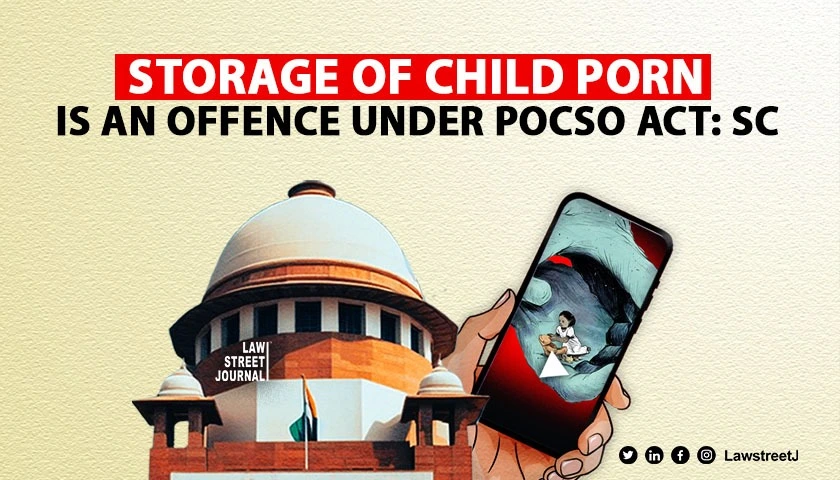NEW DELHI: In a landmark judgment, the Supreme Court on Monday held that mere storage or watching of child pornographic material is an offence under the Protection of Children from Sexual Offences Act (POCSO Act).
A bench of Chief Justice of India D Y Chandrachud and Justices J B Pardiwala and Manoj Misra set aside the Madras HC order which held that merely downloading and or watching child pornography on one's electronic device did not constitute an offence under the POCSO and the IT Act.
The court also suggested the Parliament to bring an ordinance to replace the term "child pornography" with "Child Sexual Exploitative and Abuse Material (CSEAM)". It issued orders and directions to all courts in India, not to use the term "child pornography" anymore in their judicial orders and verdicts.
"To establish the offence under Section 15(3) POCSO, apart from storage of child pornographic material, it has to be shown that such storage was done to make some gain or advantage," it said.
Senior advocate Swarupama Chaturvedi, appearing for the National Commission for Protection of Child Rights (NCPCR), had filed an intervention application for implementing the law.
The NGO, led by senior H S Phoolka submitted before court that the tip came from home ministry to the district police, and it was scanned by a foreign organisation who tracks such internet downloads of child porn. For two years the person was watching child pornography, he claimed.
The High Court had quashed the criminal case against Harish under the Protection of Children from Sexual Offences (POCSO) Act, 2012 and the Information Technology Act, 2000.
The HC had granted relief to Harish on the ground that to constitute an offence under Section 67-B of Information Technology Act, 2000, the accused person (Harish) must have published, transmitted, created material depicting children in a sexually explicit act or conduct. A careful reading of this provision does not make watching child pornography, an offence under the said Section, it had said.

















